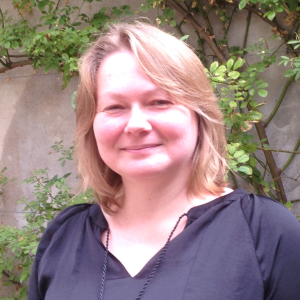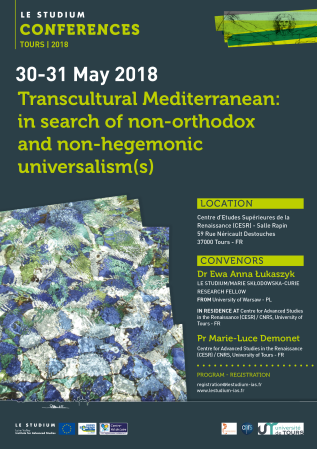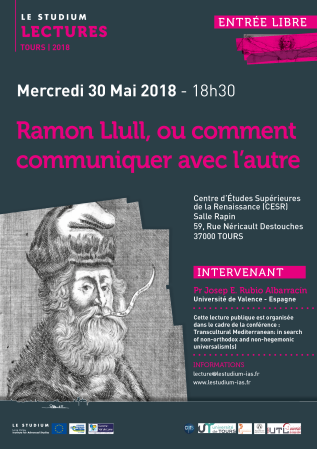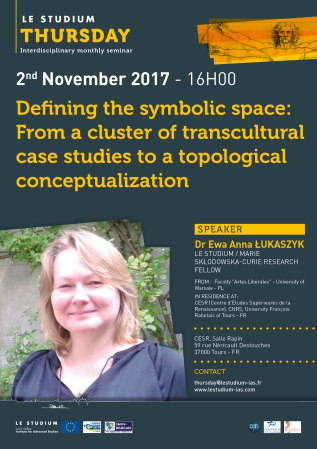Dr Ewa Anna Łukaszyk

From
Faculty "Artes Liberales" / University of Warsaw - PL
In residence at
Centre for Advanced Studies in the Renaissance (CESR) / CNRS, University of Tours - FR
Host scientist
Pr Marie-Luce Demonet
Project
The search for the adamic language and the emergence of transcultural aspiration in the aftermath of the european maritime discoveries
The medieval and early-modern speculations on Adamic language (the tongue spoken in the Garden of Eden, lost in the episode of the “confusion of tongues” as the result of the sacrilegious attempt of constructing the Tower of Babel) are related to the question of paradisical origins of man and the essential unity of the human kind. The question formed a crossroad between the Christian thought and the traditions of the other monotheistic religions. The hypothesis of recuperation of this primordial tongue became an important nexus of the Utopian thought, progressing toward more and more generalized visions of restitution, not only of language, but also of peace, justice and unity of people and things.
The aim of this proposal is to analyse the ambition of recuperating the Adamic tongue as an early stimulus to cross the cultural frontiers in search of intellectual and spiritual fullness. The research will focus on the period that followed the maritime discoveries and on the hope of rebuilding the lost language through contacts with the newly descovered peoples. The central aspect analysed is the relationship between the problem of the lost primordial tongue and the valorization of intellectual activity beyond the cultural frontiers: the idea that the lost path of truth (via veritatis perdita) can only be found through the confrontation with otherness. The line of thinkers going from Ramon Llull to Guillaume Postel, João de Barros and António Vieira, in the focus of this project, epitomizes the necessity of transcultural and transreligious dimension of intellectual activity.
The central hypothesis to be proven is the early-modern emergence of the transcultural aspiration, i.e. the desire of crossing the cultural frontier in search of intellectual or spiritual accomplishment. This study connects the early-modern history of ideas and the field of reflection on transculturality, usually associated with the present-time conditions of global mobility. Apparently marginal topic, such as the idea of generalized restitution (restitutio omnium) through language, becomes a starting point for retelling our transcultural past.
Publications
This paper aims to reflect on the perspectives of a critical return to certain aspects of the Postelian heritage, while in the recent decades the figure of this heterodox Renaissance thinker has been downgraded from fascinating to merely secondary. Indeed, his equation between intercultural communication and universal concordia remains generally valid to the present day, even for those who do not share his Adamitic and cabbalistic conceptions of language. On the other hand, his concept of congregator mundi appears as a valuable starting point for the discussion on the role and prerogatives of the intellectual as a mediator between human societies and the transcendent sphere. One may compare it with the recent thought of Giorgio Agamben, re-collocating the intellectual and the cultural critic in the line of the monotheistic prophets.
Final reports
The main hypothesis of this project is connected to the notion of pre-cultural origins of the humanity, situated in the paradisaical reality, not only before the fall, but also before the invention of the human language (Adam naming the animals created by God). The myth of the pre-lapsarian unity of the human kind became crucial to the development of the European relationship with other peoples in the aftermath of the maritime discoveries in the 16th c. The examination of this topic is an important element of the projected transcultural humanities, searching to establish a comprehensive outlook of the cultural inscription and limitations of the human thought.



